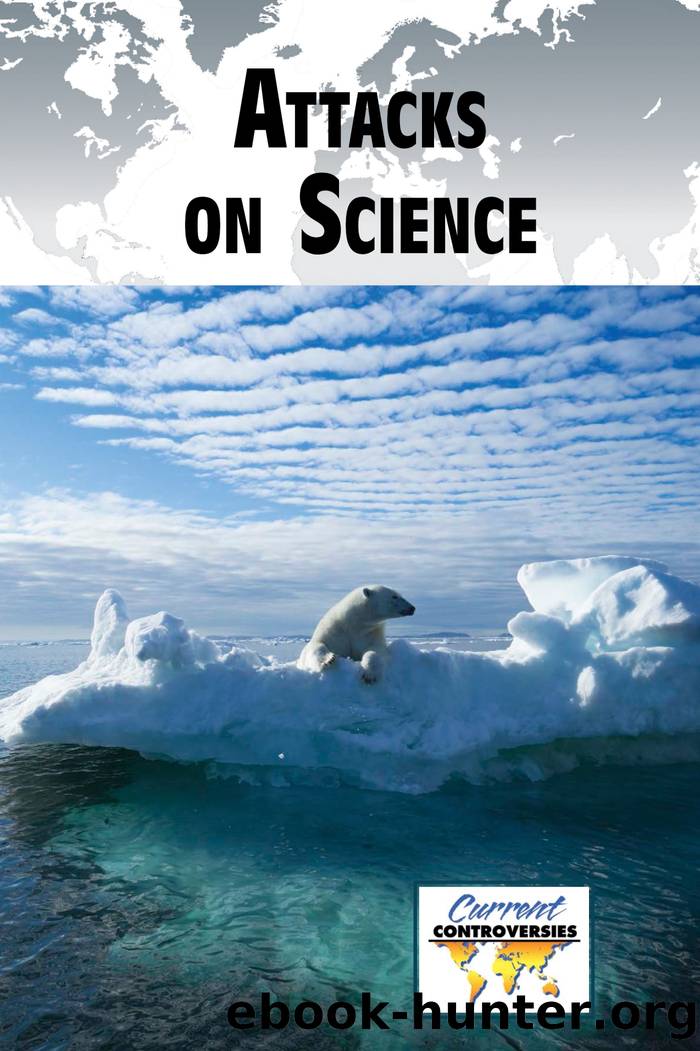Attacks on Science by Lisa Idzikowski

Author:Lisa Idzikowski
Language: eng
Format: epub
Publisher: Greenhaven Publishing LLC
Published: 2021-08-12T00:00:00+00:00
It Is Right to Question Medical Experiments That Use Humans
Anthony Wrigley
Anthony Wrigley is a senior lecturer in ethics at Keele University in the United Kingdom.
In January 1944, a 17-year-old Navy seaman named Nathan Schnurman volunteered to test protective clothing for the Navy. Following orders, he donned a gas mask and special clothes and was escorted into a 10-foot by 10-foot chamber, which was then locked from the outside. Sulfur mustard and Lewisite, poisonous gasses used in chemical weapons, were released into the chamber and, for one hour each day for five days, the seaman sat in this noxious vapor. On the final day, he became nauseous, his eyes and throat began to burn, and he asked twice to leave the chamber. Both times he was told he needed to remain until the experiment was complete. Ultimately Schnurman collapsed into unconsciousness and went into cardiac arrest. When he awoke, he had painful blisters on most of his body. He was not given any medical treatment and was ordered to never speak about what he experienced under the threat of being tried for treason. For 49 years these experiments were unknown to the public.
The Scandal Unfolds
In 1993, the National Academy of Sciences exposed a series of chemical weapons experiments stretching from 1944 to 1975 which involved 60,000 American GIs. At least 4,000 were used in gaschamber experiments such as the one described above. In addition, more than 210,000 civilians and GIs were subjected to hundreds of radiation tests from 1945 through 1962.
Testimony delivered to Congress detailed the studies, explaining that âthese tests and experiments often involved hazardous substances such as radiation, blister and nerve agents, biological agents, and lysergic acid diethylamide (LSD)....Although some participants suffered immediate acute injuries, and some died, in other cases adverse health problems were not discovered until many years laterâoften 20 to 30 years or longer.â1
These examples and others like themâsuch as the infamous Tuskegee syphilis experiments (1932-72) and the continued testing of unnecessary (and frequently risky) pharmaceuticals on human volunteersâdemonstrate the danger in assuming that adequate measures are in place to ensure ethical behavior in research.
Tuskegee Studies
In 1932, the US Public Health Service in conjunction with the Tuskegee Institute began the now notorious âTuskegee Study of Untreated Syphilis in the Negro Male.â The study purported to learn more about the treatment of syphilis and to justify treatment programs for African Americans. Six hundred African American men, 399 of whom had syphilis, became participants. They were given free medical exams, free meals, and burial insurance as recompense for their participation and were told they would be treated for âbad blood,â a term in use at the time referring to a number of ailments including syphilis, when, in fact, they did not receive proper treatment and were not informed that the study aimed to document the progression of syphilis without treatment. Penicillin was considered the standard treatment by 1947, but this treatment was never offered to the men. Indeed, the researchers took steps to ensure that participants would not receive proper treatment in order to advance the objectives of the study.
Download
This site does not store any files on its server. We only index and link to content provided by other sites. Please contact the content providers to delete copyright contents if any and email us, we'll remove relevant links or contents immediately.
Harry Potter: A Journey Through a History of Magic by British Library(386)
The Science of Philip Pullman's His Dark Materials by Mary Gribbin(364)
The Basics of Organic Chemistry by Clowes Martin;(358)
Harry Potter and the Sorcerer's Stone: SparkNotes Literature Guide by SparkNotes(328)
Braiding Sweetgrass for Young Adults by Robin Wall Kimmerer(307)
Flowers in the Gutter by K. R. Gaddy(295)
Summary of the Selfish Gene by Readtrepreneur Publishing(288)
Super Simple Chemistry by D.K. Publishing(285)
JavaScript Coding for Teens: A Beginner's Guide to Developing Websites and Games by Yueh Andrew(282)
Exam Success in Geography for IGCSE & O Level by Unknown(277)
Dark days in Salem: the witchcraft trials by Deborah Kent(263)
The Python Audio Cookbook;Recipes for Audio Scripting with Python by Alexandros Drymonitis(263)
Analysis and Linear Algebra for Finance: Part II by Bookboon.com(255)
Key Immigration Laws by Kathryn Ohnaka(253)
Cracking the AP Economics Macro & Micro Exams, 2017 Edition by Princeton Review(244)
Solutions for a Cleaner, Greener Planet: Environmental Chemistry by Marc Zimmer(241)
Reverse Engineering For Everyone! by mytechnotalent(232)
The Science of Fashion by Julie Danneberg;(229)
Cracking the AP Psychology Exam, 2017 Edition by Princeton Review(218)
